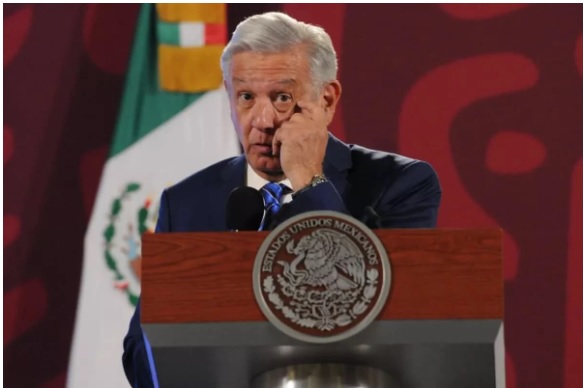The Mexican government said on Friday it had suffered a major cyber hack of data held by the armed forces, including details about President Andres Manuel Lopez Obrador’s heart condition which led to his hospitalization in January.
The president, speaking at a regular news conference, said information published in local media overnight from the hack of the defense ministry was genuine, and he confirmed revelations about his own health problems.
“It’s true, there was a cyber hack,” he said, noting that hackers had exploited a change in the military’s IT systems.
According to media reports, the hack accessed six terabytes of data from the defense ministry, including information about criminal figures, transcripts of communications, and the monitoring of the U.S. ambassador to Mexico, Ken Salazar.
It follows the government’s revelation on Thursday that a military helicopter crash in July that killed 14 people was caused by the aircraft running out of fuel.
The hack also revealed the 68-year-old Lopez Obrador has been diagnosed with a form of angina and had 10 medical consultations in the first half of January.
Lopez Obrador, who had a heart attack in 2013, said he was taken to hospital in January because of the risk he could suffer another one. The government had previously said he underwent a cardiac catheterization that month. He also said he was taking medicine and doing exercise to help with high blood pressure.
“I ended up on a cocktail (of drugs) I take at night for various illnesses,” he said, “but I am very well.”
The hack was carried out by a group identified in local media as “Guacamaya” – or “macaw” in Spanish.
Lopez Obrador, a vocal supporter of Wikileaks founder Julian Assange, said the group was likely of foreign origin.
Carlos Loret, a Mexican journalist and noted critic of the government who first reported details of the leak, said the ministry’s data trove showed how much power the armed forces had acquired under Lopez Obrador, who has tasked the military with everything from building infrastructure to overseeing customs.
“This is also a ministry that lapsed in its cyber security and was left exposed, even as the country debates the role of the armed forces in the country,” Loret said in an online video.
Source: El Universal




